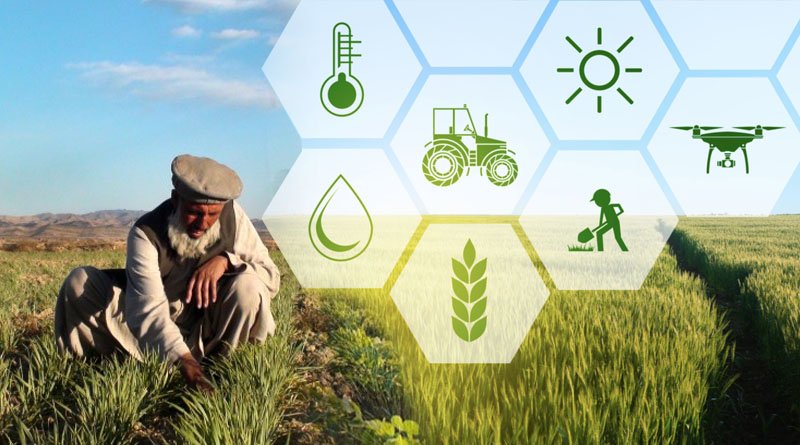In order to improve reporting on water governance, the International Water Management Institute (IWMI) Pakistan organised a media exposure field trip to the Okara district.

Speakers at a workshop emphasised the importance of implementing climate-smart agriculture to ensure food security and increase growers’ productivity.
They emphasised the advantages of using modern machinery to ensure the wise use of water resources available and of implementing better farming methods to increase crop yields.
In order to improve reporting on water governance, the International Water Management Institute (IWMI) Pakistan organised a media exposure field trip to the Okara district.
The director of OFWM Research Farm in Punjab, Dr. Habib Ullah Habib, emphasised the value of media in promoting crop water productivity and increasing knowledge of climate-smart agriculture and environmental awareness. He emphasised the advantages of drip irrigation systems, bed and furrow technology, and laser land levelling. In order to address the issue of scarce water resources and raise awareness, the media is essential.
The Water Resource Accountability in Pakistan (WRAP) Programme Component 1: Climate Resilient Solutions for Improving Water Governance (CRS-IWaG) and on-site briefings on interventions in the Okara district were discussed by Dr. Jehanzeb Masud Cheema, Researcher at IWMI Pakistan.
He emphasised the automated soil moisture sensor that IWMI Pakistan installed at farms in the Okara district, which is both affordable and user-friendly.
The sensor aids farmers in planning irrigation when necessary, and other farmers are anticipated to use the technology as they experience its advantages.
Dr. Jehanzeb talked about collaborating with the Punjab Irrigation Department (PID) to install Conductivity, Temperature, and Depth (CTD) sensors in the Okara district. A Principal Component Analysis (PCA) was carried out by IWMI Pakistan to assist PID in locating potential groundwater monitoring locations for CTD sensors.
To support efficient groundwater management in the Okara district, the PCA recommended specific locations for CTD divers to gather real-time data on groundwater quality and quantity. PID recommended field formations install CTD divers at fresh IWMI Pakistan-suggested locations.
During an on-site briefing, Hafsa Aeman, Senior Research Officer – Geoinformatics, IWMI Pakistan, explained how the Electrical Conductivity (EC) metre works to measure water quality. She claims that “using an EC metre can assist farmers in determining whether water is suitable for crops. Before irrigating crops, farmers should check the water’s quality and keep an eye on how much nutrient, salt, or impurity is present.
Farmers in the Lower Bari Doab Canal (LBDC) tail-end areas should adopt water-saving practises, according to Muhammad Hasnain Abbas, Assistant Director of the Water Resources Zone at the Sahiwal Irrigation Department. This will boost productivity.
The benefits of growing low delta crops as a form of adaptation and the risks of water waste can both be effectively communicated to farmers through the media.
To discuss irrigation and the difficulties facing the agricultural sector, a meeting was also organised with progressive farmers from the Okara district.
The journalists who were present questioned the farmers about how they deal with shifting weather patterns and whether they are open to new technologies. When using the “More Crop Per Drop” strategy to increase agricultural productivity, the farmers demonstrated a willingness to adopt new technologies.